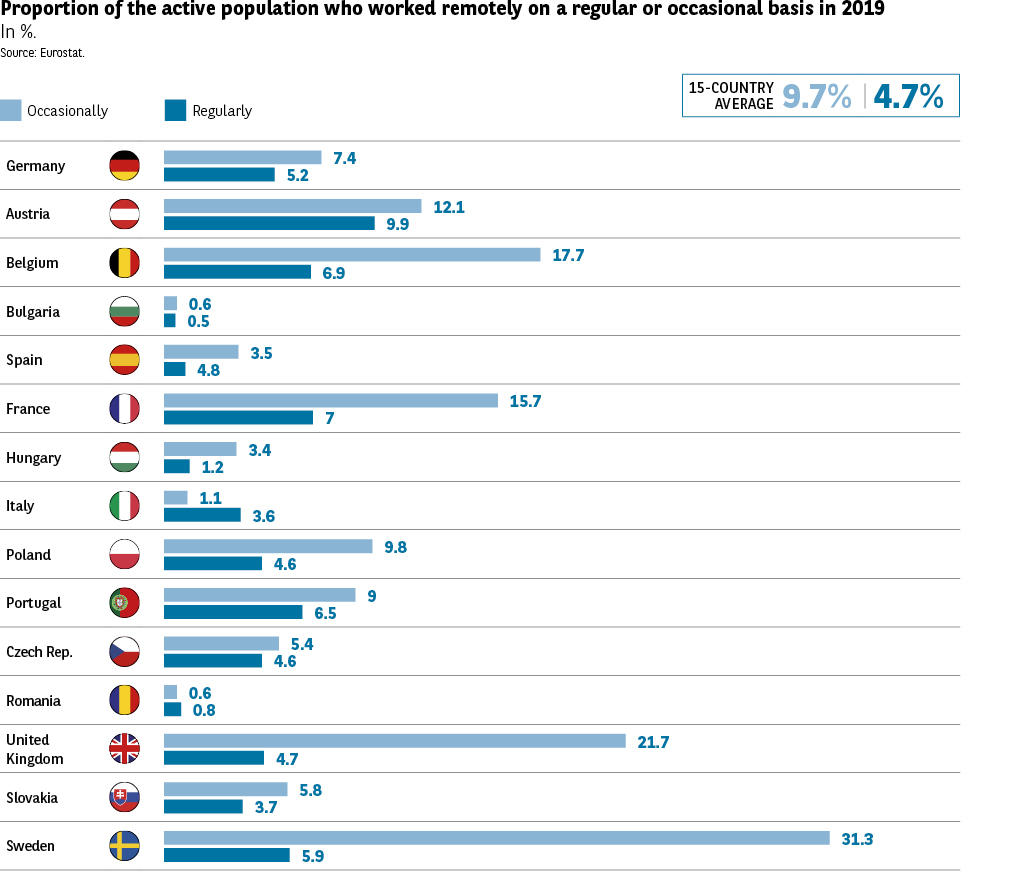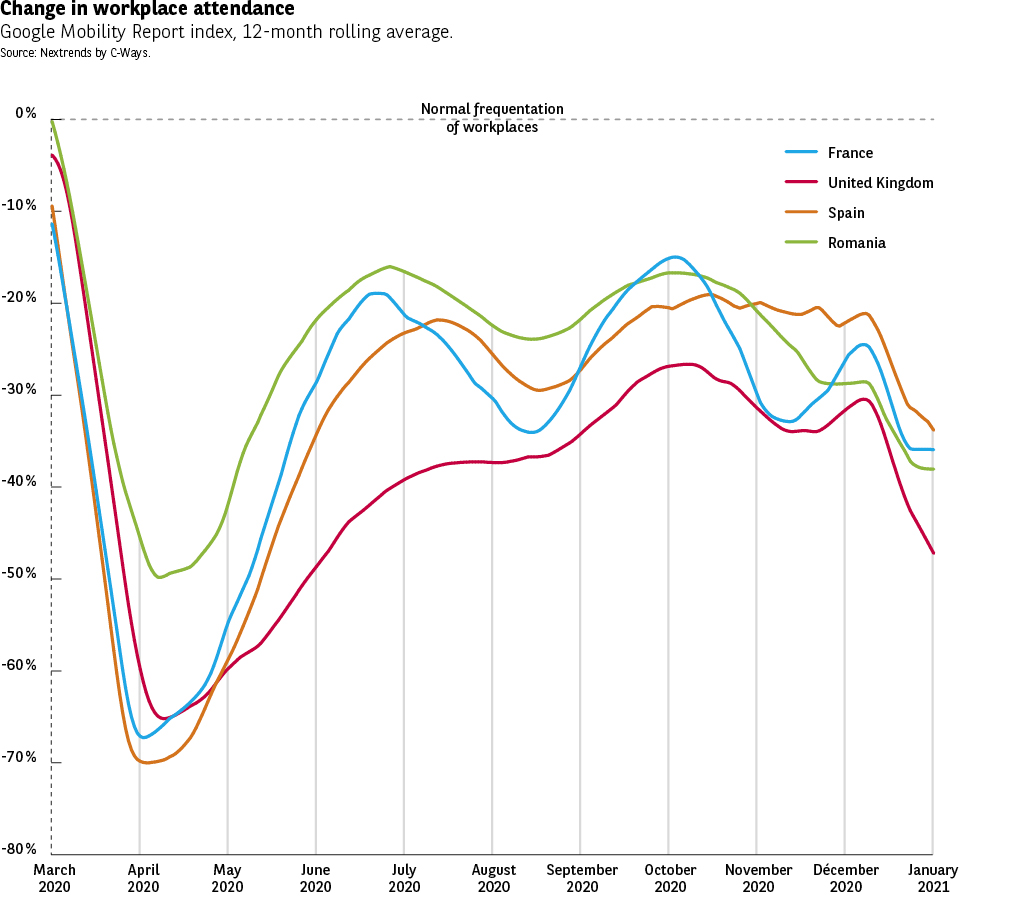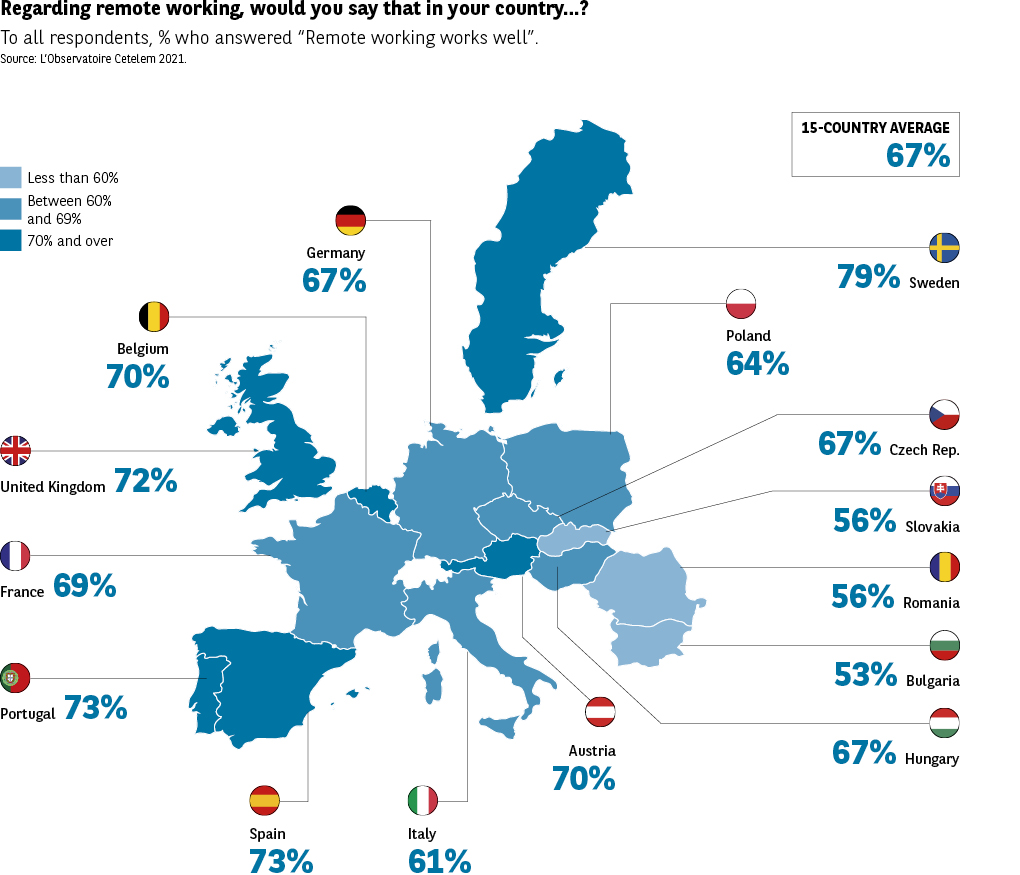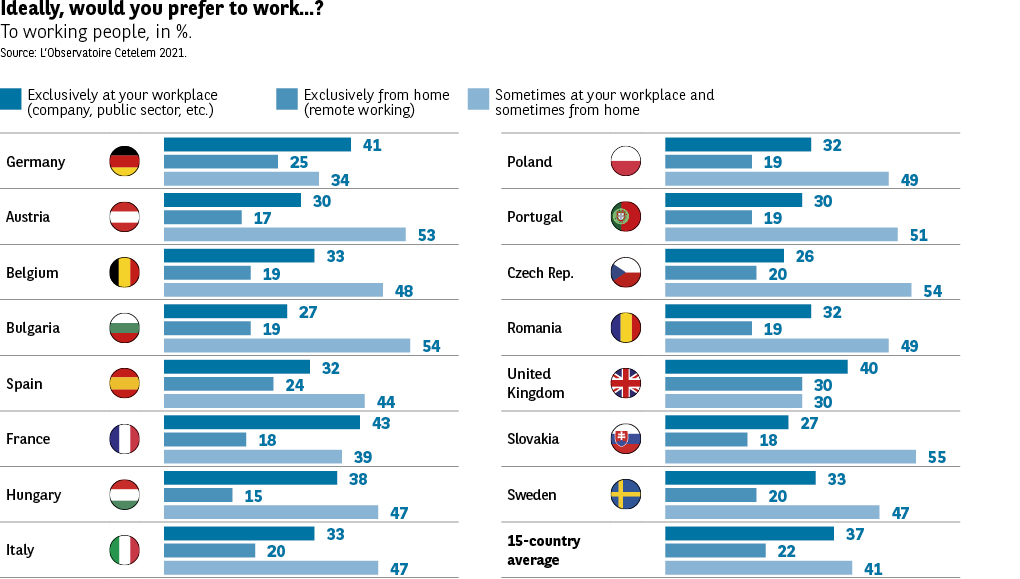Remote working


Remote working gains ground…
In the wake of remote working’s blistering rise, could 2020 mark the emergence of “full remote”? Behind this expression lies the purest version of remote working, where employees become digital nomads and never go to the office (Fig. 38).
The health crisis has made it clear that working from home has become a potential human resource management lever for companies, not to mention a necessity in the circumstances. Previous years had already seen a marked increase in remote working in many European countries. The United Kingdom is at the forefront of the trend, with 40% of companies adopting teleworking on a permanent basis (source: survey by the Fraunhofer Institute, July 2020). Conversely, countries like Spain and Italy seem to have become familiar with the practice thanks entirely to the pandemic.
Over the last few months, successive lockdowns have considerably accelerated the trend, probably to the point of irreversibility (Fig. 39). An analysis of commuting data gathered from a panel of European countries shows that people have not returned to the office in the same numbers as prior to the lockdown. As has been said on numerous occasions during the Covid-19 crisis, this is a part of daily life “that will never be the same again”.
… and is widely accepted
Europeans welcome this shift with open arms. 67% believe that remote working works well (Fig. 40). This is likely down to the pleasure of regaining a certain degree of freedom and the benefits of no longer having to endure a sometimes exhausting daily commute, even if the line between work life and private life has become more blurred. Indeed, the interviews carried out for this survey underlined the fact that working hours have, in some cases, become longer, contrary to what our intuition may tell us.
The Swedes and the British are very likely to hold positive opinions of remote working. But these are two countries in which it is nothing new. More telling is the fact that Portugal and Spain share their enthusiasm (73%), despite the practice only recently become a reality for workers. In Central Europe, opinions are more measured. Only 53% of Bulgarians believe that teleworking works well.
.
« Remote working is undeniably convenient, it gives you a certain freedom, it makes it easier to manage your time and your work. I would like to work remotely one or two days a week, because I can work just as well at home as at the office. »
The social side of work must be considered
Despite all the points made previously, Europeans are fully aware that work is a form of socialisation. A small minority of working people (22%) want to work exclusively from home, with the British being most likely to hold this view (30%) (Fig. 41). A sign that remote working has become a permanent feature of the world of work, and one that is now ingrained in people’s minds, is the fact that 4 out of 10 Europeans could see themselves alternating between working from home and at their workplace. These individuals just outnumber those who remain more resistant and want to do their job exclusively at their workplace (37%). Preferences vary significantly from one country to the next. While only 30% of Britons are keen to share their time between the two, 55% of Slovaks, 54% of Bulgarians and the same proportion of Czechs would like to do so. The French, meanwhile, are more traditional in their outlook, with 43% keen to work exclusively at their workplace.




